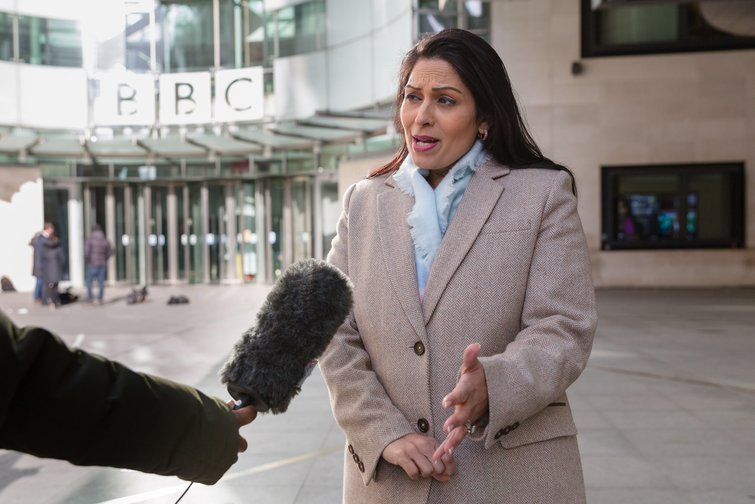Backbenchers had wanted a ‘public interest defence’ to prevent journalists being jailed for sharing restricted information

MPs have voted in favour of the controversial National Security Bill in what has been called a “disaster for the free press” in Britain.
Priti Patel’s controversial new law has been criticised for giving the government “disproportionate and vague powers” that could deter media outlets and campaign groups from publishing information that is in the public interest.
Despite attempts to amend the law by cross-party MPs, and a campaign by a coalition of journalists that included openDemocracy, the National Security Bill passed its third reading on Wednesday evening, meaning it will now go to the House of Lords for further scrutiny.
A group of backbench MPs – from Labour, Tory, the SNP, the Lib Dems and Plaid Cymru – had backed an amendment to the bill intended to protect journalists from the risk of being imprisoned should they report on leaked government information that exposes wrongdoing. But it was not chosen for debate by the Speaker, despite 3,239 openDemocracy readers having emailed their MPs urging them to back it.
It would have provided a way for journalists and whistleblowers to defend themselves from prosecution if they publish undisclosed government information that they believe the public has a right to know about.
In total, 610 MPs received emails from openDemocracy readers.
Séamus Dooley, NUJ assistant general secretary, said ahead of the vote that it would be a “disaster for the free press and a huge danger for journalists if this bill does not contain an amendment that includes a public interest defence”.
The Home Office argues that the bill is needed because the UK’s secrecy laws are outdated and no longer counter “modern-day state threats” from countries including Russia and China. But MPs and press freedom organisations fear that the government’s measures are so broadly drawn that they could lead to journalists being treated like foreign spies.
“While the government has stated its desire to protect journalism, these assurances are no more than words, with no protections to be found in the proposed legislation. This bill represents a severe threat to media freedom, free expression and the public’s right to know,” said Nik Williams, policy and campaigns officer, Index on Censorship.
Chief among concerns raised by MPs and a coalition that includes the National Union of Journalists, Reporters Without Borders and this website are the introduction of what the government terms a “foreign power condition”.
Journalists and so-called ‘civil society’ organisations – including charities and NGOs – that receive foreign funding, or work for news organisations based outside the UK, could fall foul of this condition and face prosecution for sharing restricted information.
Press freedom groups have also expressed alarm at the government’s proposal to widen the definition of what is considered “protected information” to include anything that it hasn’t actively approved for publication.
Campaigners said that the change “could allow the law to be used to protect the reputation of the UK government and shield it from democratic scrutiny” in a submission to the committee of MPs scrutinising the bill.



